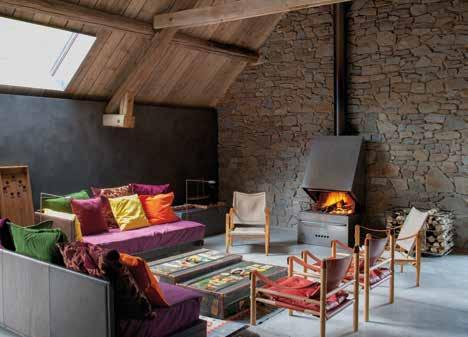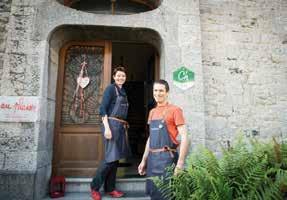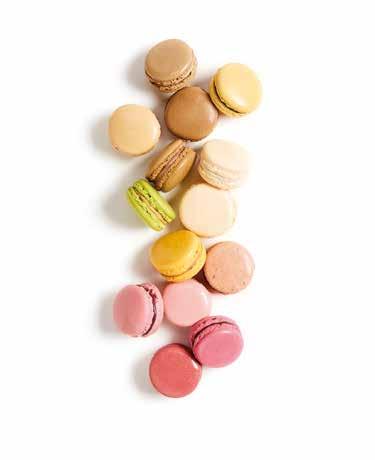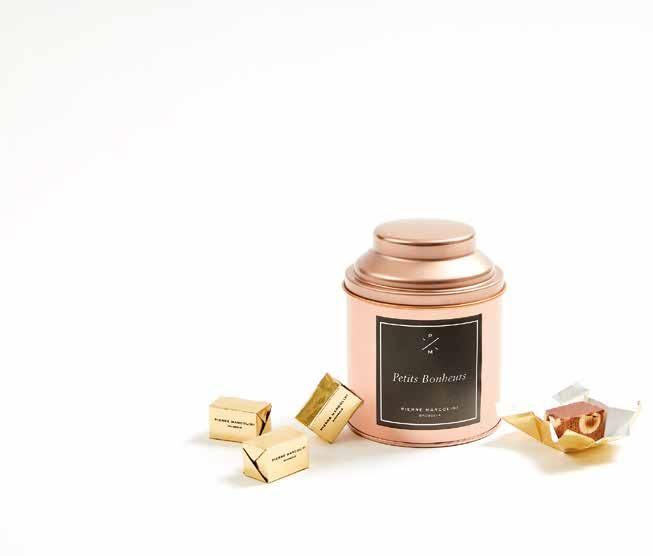
6 minute read
Escape to the country with

Rural retreat Escape the crowds and head to a hideaway in Wallonia’s spectacular countryside
Advertisement
By Sarah Crew
As winter draws in, what could be more appealing than running away for a few days or more to an idyllic spot in the south of Belgium?
For a slice of country life – whatever the weather – Gîtes et Chambres d’hôtes de Wallonie offers a selection of more than 900 homes to rent all year round. With its portfolio of cottages, B&Bs, cosy cabins and quirky retreats, the site will help you find the perfect base for frosty rambles through rolling hills, river valleys, leaf-strewn woodlands or wild forests.
With travel abroad remaining largely off-limits, many Belgians are exploring life in the slow lane and opting for a back-to-nature break. “It’s possible to get away close to home and discover or rediscover the country,” says Khevyn Torres, spokesperson for the site. “We always think the grass is greener on the other side of the fence and that we know our own region, but we’re often less familiar with it than some tourists from abroad.”
The welcome provided by owners and the personal tips they pass on are among the major selling points for the accommodation platform, he says. “They serve as ambassadors for the region and share many off-thebeaten path local addresses and highlights.” While restrictions on the number of guests – a family bubble plus one other close contact – have meant some owners of large self-catering properties have had to cancel reservations, the sector has otherwise reported good business in 2020. Guests can also be reassured by the Covid safety measures in place. “We guarantee the safety protocols; there’s no contact with other people,” Torres says. Set up as an association in 1989, its website was modernised before the arrival of the pandemic. Proposing accommodation according to categories and classifications of comfort, it also facilitates the search by suggesting themed stays. These include wellness, ecological, child- and pet-friendly, waterside, farm and woodland stays, as well as fishing and cycling destinations. Rural homes dominate the offer, but there are some more urban addresses, principally in cities with a tradition of tourism, like Liège, Namur, Mons or Tournai, plus picturesque towns and villages such as Durbuy and Rochefort.
While some people may be looking for a digital detox, the site’s latest theme – reflecting the unexpected 2020 trend – is places for homeworking that remain definitely ongrid.


© Vivian Hertz



One of the biggest draws to the site is that vis- “No properties can be part of our quality laitors can be confident of the quality and high bel and be promoted by our network without standards of each property and inspections meeting these conditions,” he says. Since the by expert teams. Property owners are subject site’s latest makeover, owners have also been to strict selection criteria, explains Torres. given a higher profile to personalise each These include authorisation from Wallonia’s property, “showing how the people behind tourism commission, receiving site visits to them have a story”. obtain a classification – ranging from basic to exceptional comfort – agreeing to welcome The emergence of unregulated sites such guests in person and signing up to a charter. as Airbnb has brought competition. Torres: It’s possible to get away “ close to home and discover or rediscover the country
“Not all the accommodation on those platforms are in order, particularly in terms of fire safety, and they do not pay taxes or declare rental income.” But on the upside, "we attract a different audience and we offer a quality experience that comes with a price,” he says.
gitesdewallonie.be
La Cabine, Bioul (Anhée) Welcoming breakfast at Dimensions
M, Corbais (Mont-Saint-Guibert) Villa Balat, Namur Le Jardin des Secrets, Namur Au Plaisir, Hastière Wooden staircase, Villa Thérèsa,
Soignies Au Bouquet de Somme, near Durbuy
Best bar none We meet chocolatier Pierre Marcolini, officially the world’s best pastry chef
By Tomáš Miklica
• Charleroi-born chocolatier Pierre Marcolini Pierre Marcolini today is as much a brand as he is a person. He was born in 1964 in Charleroi. And his patisserie empire was born 31 years later when the first atelier opened in Kraainem. The Maison now has more than 40 stores around the world, it employs 250 people and, under normal circumstances, 60 artisans would be busy at the Haren atelier in northern Brussels, creating chocolate tablets, truffles, macarons, jams and other sweet treats. Marcolini himself remains the chief artisan, always pushing for the highest quality and being widely recognised for it. His latest accolade came during the virtual World Pastry Stars event in October, when he was named the Best Pastry Chef in the World.


“To receive such a tribute from independent journalists as well as from the greatest chefs and confectioners is a real honour,” he says. “It’s a reward for the whole Maison and for the committed effort of all my co-workers. This award means a lot to me, especially in the time of Covid.”
Like many other businesses, his company had to close stores in spring, focusing solely on the e-shop. When Belgium’s second lockdown came later in the year, some shops remained open but without the usual demand from tourists. Despite the tough year, Marcolini is set on exploring the craft further, looking for ways of making it even more enticing to customers. Recent projects include La Manufacture des Biscuits at Place du Grand Sablon in Brussels with an artisan on site creating biscuits and chocolate coatings. And then there is a boutique atelier in Antwerp, focusing on new chocolate tablets.
“We will be working with new cocoa beans, organic beans from Madagascar, Sao Tome, India, Bali and China exclusively at this store,” Marcolini says. “Our customers will be able to see the entire production ‘from bean to bar’ in the presence of a master chocolatier.”
Marcolini decided to make his own chocolate directly from raw cocoa beans in 2001, after a new European directive came into force. The Chocolate Directive allowed the addition of up to 5-10% of vegetable fats other than cocoa butter in chocolate. Marcolini found this inconceivable, and since then he has been working with plantations all around the world. Aware of their significance, Maison Pierre Marcolini pays the growers up to three times the market price so that they can send their children to school and invest in their plantation. Since 2019, both sides have also been bound by an eco-ethical charter – the agreement prohibits child labour, bans the use of glyphosate-based herbicides and excludes beans from the CCN-51 cocoa tree. To Marcolini, gathering exceptional raw materials and mastering the bean-to-bar process are the key steps in making a perfect chocolate.


“It is also important to master the different stages of production, such as the roasting stage,” he says. “Your cocoa beans can be the best in the world but the result won’t be of the best quality unless you have complete control over all the stages.” Marcolini’s plan is to one day open a school and pass his knowledge on to future generations. Not only would he teach the complexities of bean-to-bar chocolate making, but the school would also be about cultivating one’s taste in order to recognise a good product and encouraging the audacity to pursue new flavours.
“Chocolate must cause an explosion of flavours,” Marcolini says. “Perfect chocolate is the chocolate that leaves a long-lasting taste in your mouth. It transports you and makes you dream.”
eu.marcolini.com









